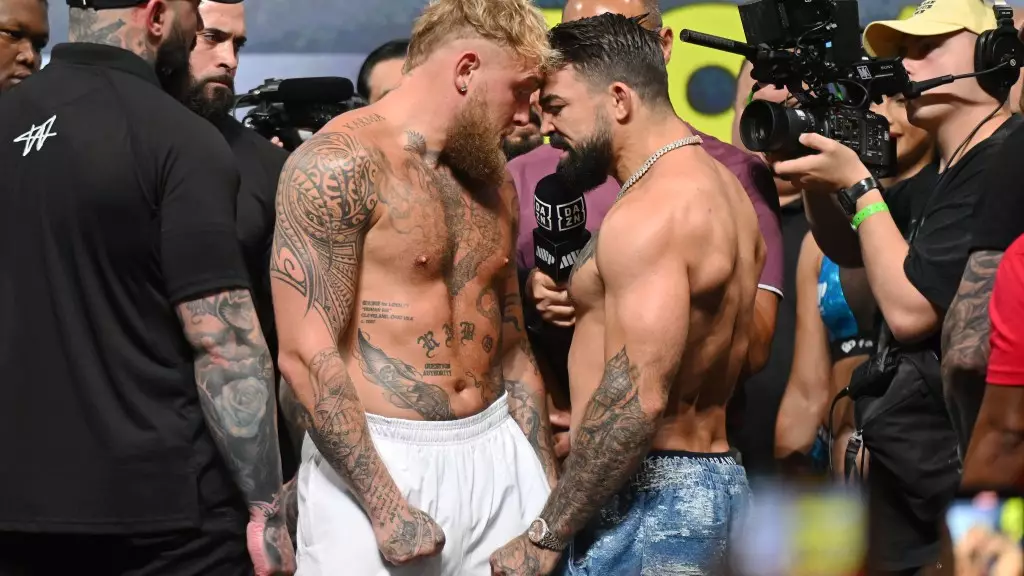In a recently highlighted fight, Mike Perry faced off against the controversial YouTuber-turned-boxer Jake Paul, a match that many fans consider pivotal in their professional careers. Perry, holding a record of 0-2, experienced a sixth-round TKO loss to Paul, who now boasts an impressive 10-1 record. This bout, taking place in July at the Amalie Arena in Tampa, Florida, stirred various discussions, particularly regarding the integrity of drug testing protocols within the sport.
Perry has voiced his surprise over the lack of drug testing before his fight with Paul—a situation he claims was unprecedented compared to his previous matches. In an interview, he stated, “They tested me for all my fights except for the Jake Paul fight,” which raises important questions about the standards upheld in high-stakes matches.
The inconsistency in drug testing raises significant concerns regarding fair play, an issue that has long plagued combat sports. Perry’s remarks about training alongside athletes who may utilize performance-enhancing drugs add another layer of controversy. He expressed disbelief that neither he nor Paul underwent testing for a match of such magnitude, implying that the oversight could potentially skew the fight’s outcome.
Moreover, during the interview, Perry suggested, “If he’s on some sh*t, it’s so good they can’t test for it anyways,” opening up the dialogue about the efficacy of current drug testing methods. This revelation speaks volumes about the potential shadow over the legitimacy of the sport, as athletes’ health and the authenticity of competition come into question.
Looking ahead, Perry has directed his focus toward the upcoming fight between boxing icon Mike Tyson and Jake Paul. At nearly 60 years old, Tyson’s return to the boxing ring has piqued curiosity and concern in equal measure. Perry admits he has reservations about how Tyson will fare, especially given the physical demands of the sport at such an advanced age. However, he also believes that the heightened stakes could potentially ignite a fierce performance from Tyson.
In his analysis, Perry pointed out Tyson’s seemingly sharp mental state, stating that “Mike Tyson hasn’t skipped a beat” regarding his preparations. He draws a parallel to the bout between Evander Holyfield and Vitor Belfort, which underscored how age could influence performance. Perry’s observations outline the unpredictability that accompanies heavily scrutinized boxers re-entering competitive arenas.
Adding an intriguing element to the Tyson-Paul fight, Paul has reportedly offered a $5 million incentive, challenging Tyson to survive five rounds, or face the humorous consequence of etching a tattoo declaring his admiration for Paul. This unique proposal not only raises questions about the seriousness of the contest but also reflects the unpredictable dynamics of modern boxing, where entertainment often intertwines with athletic authenticity.
As the landscape of boxing continues to evolve, the issues of performance-enhancing drugs and fair competition remain ever-present. Perry’s candid revelations about his experience highlight the necessity for rigorous standards in combat sports, and the upcoming clashes will undoubtedly draw further examination as the lines between entertainment and sport blur increasingly.

